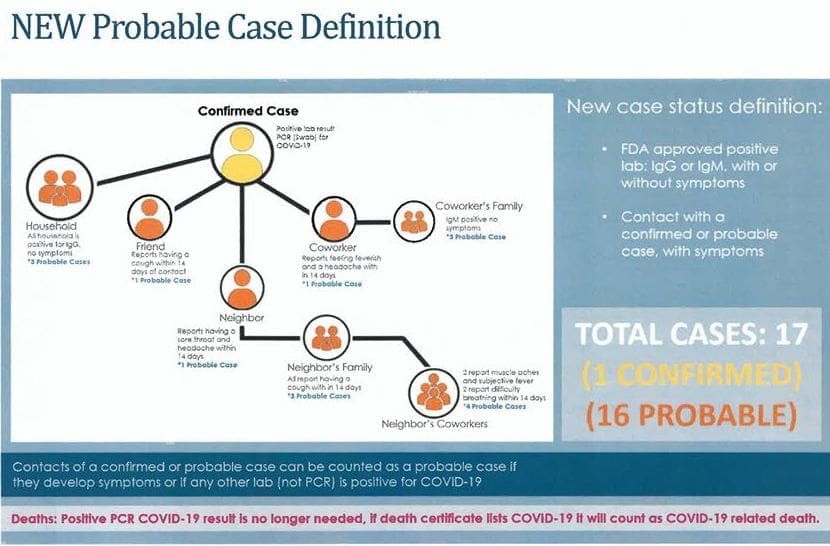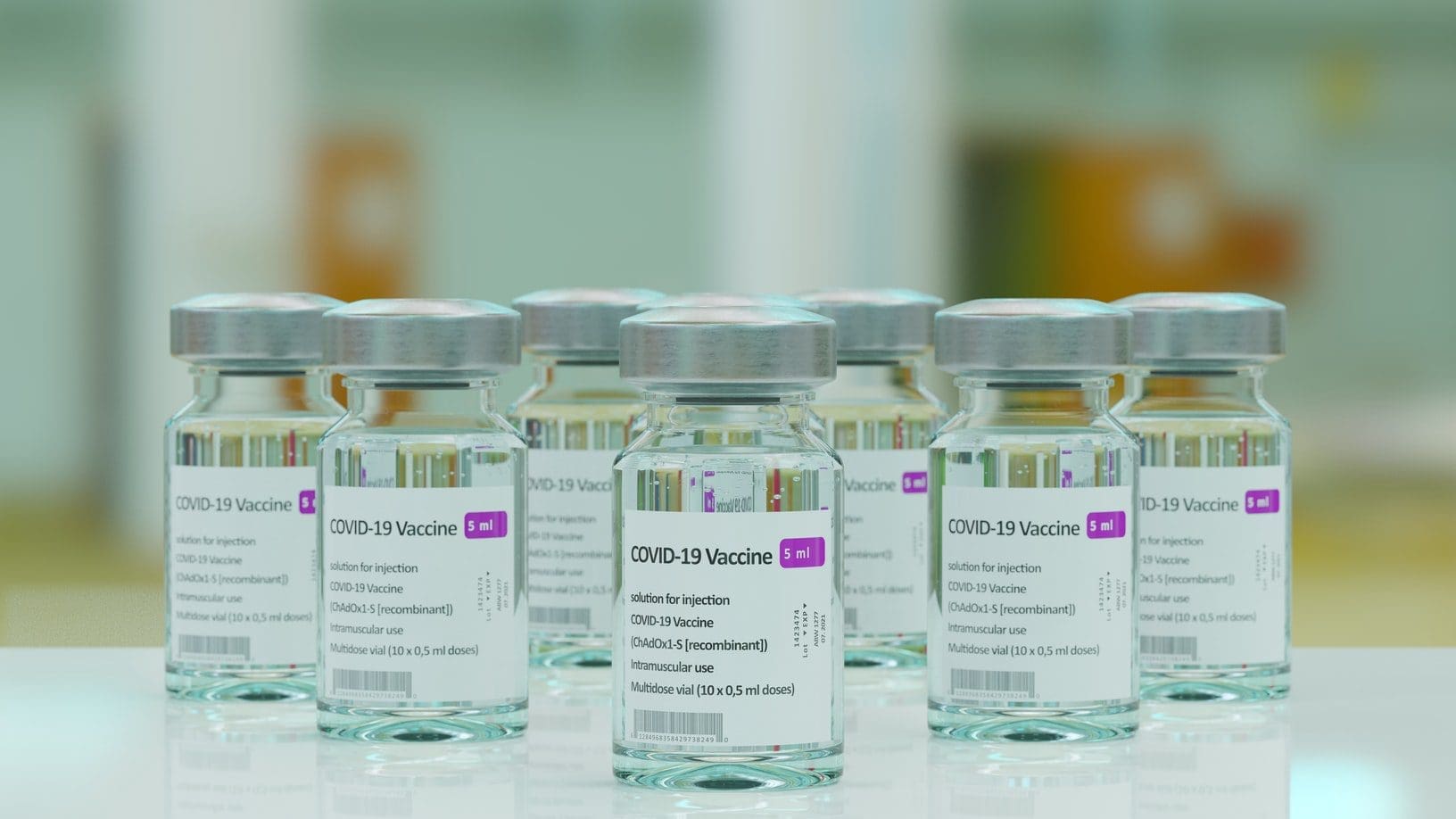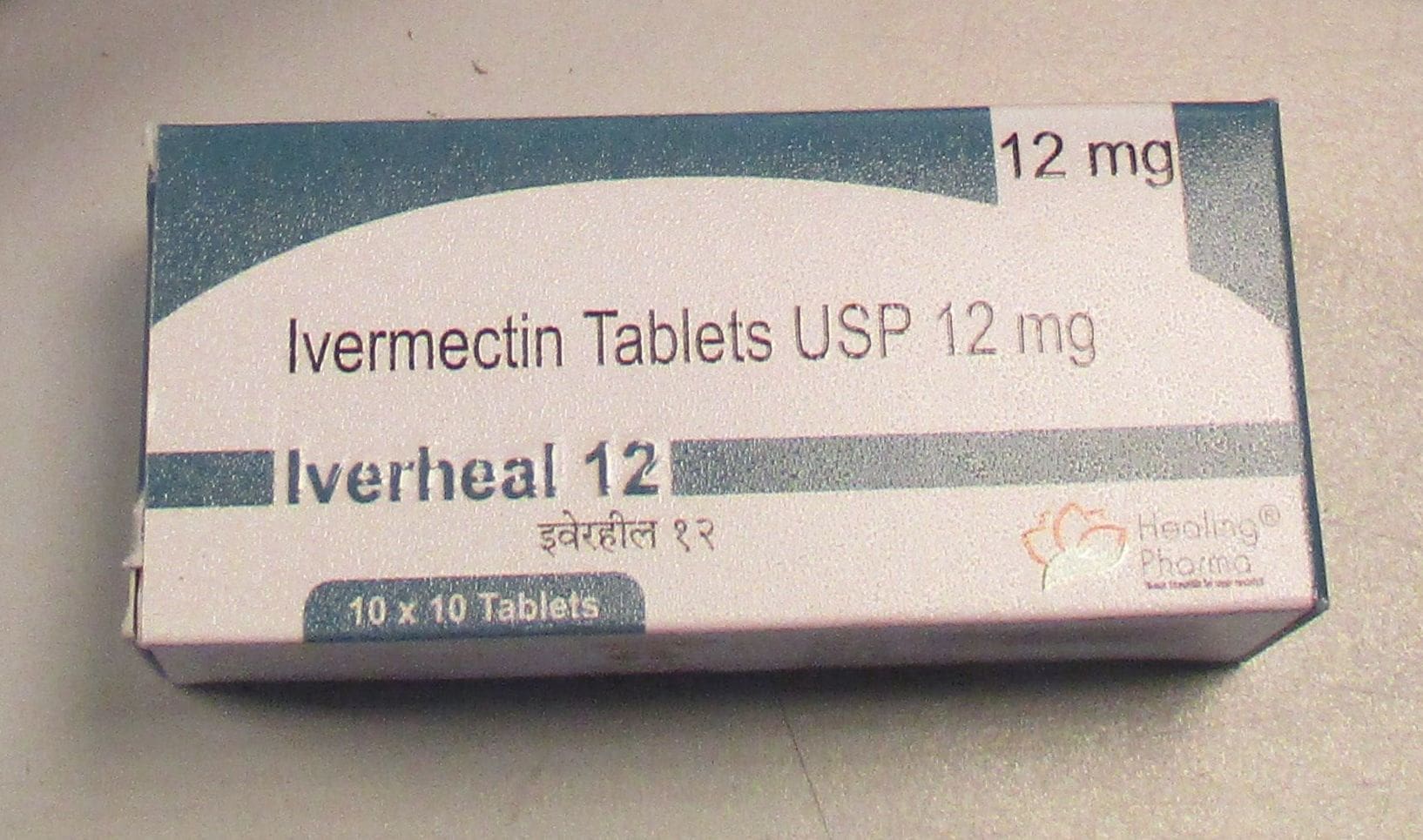UPDATED May 27.
North Texas officials are warning changes in how the state defines and reports cases of the Chinese coronavirus could “significantly and artificially” spike local case totals, creating false alarm as Texas begins to reopen for business.
Collin County Judge Chris Hill advised residents this weekend the Texas Department of State Health Services (DSHS) will begin reporting “probable” COVID-19 cases in addition to “confirmed” cases.
Texas is also expanding its criteria for defining “probable” cases, as well as COVID-related deaths.
The new guidelines are being implemented as DSHS planned to take over all coronavirus case management, contact tracing, and reporting duties starting Tuesday.
Hill said Tuesday evening those plans to transfer duties are on hold following a “very productive” conference call he, Commissioner Cheryl Williams, and county staff had with DSHS earlier in the day:
“DSHS has agreed to postpone the transition to allow for additional discussions. Accordingly, the Commissioners Court will hold a special meeting this Friday, May 29, 2020, at 1:30pm to discuss the transition and the ongoing relationship between DSHS and Collin County.”
For now, Hill said Collin County officials will continue monitoring and reporting on local cases.
Prior to the new case-definition guidelines, Collin County and Texas have been reporting “confirmed” cases based on laboratory PCR (polymerase chain reaction) tests which detect SARS-CoV-2 RNA in a clinical specimen.
Under the state’s expanded criteria, it is possible to meet the definition of a probable COVID-19 case without exhibiting any symptoms at all.
“It is remarkable how low the standard is now,” Hill said at last week’s commissioners court meeting during a briefing on the changes:
“I fear this is coming at a time when we’re just now starting to reopen. If the numbers jump in a false way, it’s going to start to be very concerning to our citizens that we’re actually going backwards.”
“I am not happy with the state-mandated changes,” Commissioner Darrell Hale said following the meeting. “As a county, we have been good about reporting cases and information. And now, midstream, the reporting methodology is changing. This change will make quality decisions harder.”
On Sunday, Hill said there are significant reasons to be concerned with the new reporting criteria.
The increase in false positives will result in more residents quarantined for insignificant reasons and will raise public distrust of the state’s reporting. It will also stress health department resources, as contact tracing of more “probable” cases will lead to inflated lists of people being monitored.
“None of these help us stop the spread of COVID-19, nor do they strike a prudent balance between public health priorities and individual concerns,” he said. “This is not the way to keep our communities healthy.”
Hill said the state is also changing how virus-related deaths are reported:
“Currently, a death in our community is reported as COVID-19 related only if a laboratory test had been completed and confirmed. Under the new DSHS guidance, any individual whose death certificate lists COVID-19 as a cause of death or a significant condition contributing to death (even when no confirmatory laboratory testing was performed) will be included in the COVID-19 death totals.”
“This is alarming and comes at a time when we are starting to reopen,” Collin County resident Deidra Dennis told Texas Scorecard. “It will drive up the probable case numbers and deaths, thus [indicating] we should shut down again. The state, instead of counties, will take charge and do the full virus statistical reporting and contact tracing. I don’t see removing local county control as a good idea.”
Local activist Mike Openshaw, who has a background in medical microbiology/virology and data analysis, has been following the coronavirus numbers closely since the beginning of the outbreak and is also alarmed by the reporting changes.
“Suddenly adding these numbers to the number of confirmed cases will cause the numbers to skyrocket,” Openshaw posted on Facebook. “From an epidemiological standpoint, it will make it impossible to determine if we are gaining or losing ground. From a political and policy viewpoint … this will ‘poison the policy well’ with false numbers.”
Openshaw said DSHS should report the numbers, but separately. “Changing how and what numbers are reported and merging them together—just as we are reopening the economy—is both false and a blatant attempt to skew policy by unelected bureaucrats.”
Proponents say the new reporting strategy accords with CDC guidelines and will ensure case data is reported consistently for all counties.
The CDC and Texas DSHS acknowledged last week they had been improperly combining active infection and antibody test numbers since May 13.
Future coronavirus case data for Collin and other Texas counties will be reported on the DSHS COVID-19 dashboard.






